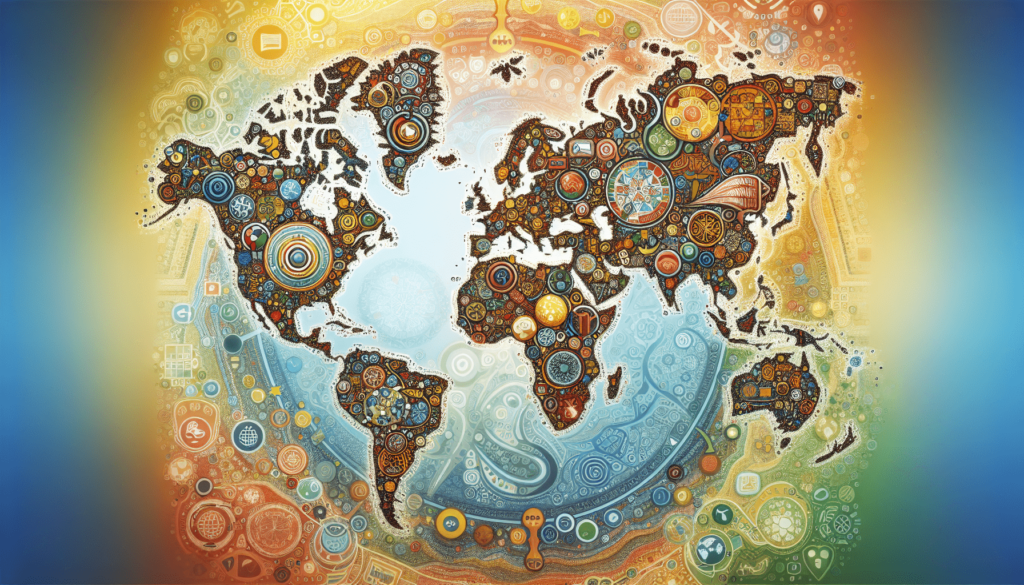Do you find it challenging to learn a new language?
Learning a new language can be a daunting task, but did you know that utilizing cultural resources can significantly improve your language skills? In this article, you will discover how incorporating cultural elements can enhance your learning experience and help you become more proficient in a foreign language.

Understanding the Role of Cultural Resources in Language Learning
Cultural resources play a crucial role in language learning as they provide context, authenticity, and richness to the learning experience. By immersing yourself in the culture associated with the language you are learning, you can gain a deeper understanding of linguistic nuances, idiomatic expressions, and cultural references. This holistic approach not only enhances your language skills but also broadens your knowledge of the culture, history, and traditions of the native speakers.
Leveraging Authentic Materials for Language Acquisition
Authentic materials, such as films, music, literature, and news articles in the target language, serve as valuable resources for language acquisition. These materials offer real-world examples of how the language is used in everyday contexts, allowing you to improve your listening, reading, speaking, and writing skills in a natural and immersive way. Additionally, authentic materials expose you to various dialects, accents, and registers, helping you develop a well-rounded language proficiency.
Incorporating Cultural Events and Activities into Your Language Study
Attending cultural events, participating in cultural activities, and engaging with native speakers are excellent ways to enhance your language skills. By immersing yourself in the cultural life of the target language community, you can practice your language skills in real-life scenarios, interact with native speakers, and build meaningful connections. Cultural events, such as festivals, exhibits, and performances, provide unique opportunities to experience the language in a dynamic and authentic setting, fostering both language acquisition and cultural appreciation.
Building Vocabulary Through Cultural Exploration
Culture is deeply intertwined with language, and exploring cultural topics is a great way to expand your vocabulary. By delving into the cuisine, traditions, history, and arts of the target language culture, you can learn new words, expressions, and idioms that are essential for effective communication. Building a cultural vocabulary not only enhances your language proficiency but also enables you to engage more meaningfully with native speakers and better understand the cultural context in which the language is used.

Developing Intercultural Competence Through Language Study
Learning a language involves more than just mastering grammar and vocabulary; it also requires developing intercultural competence. By studying the cultural norms, values, beliefs, and behaviors of the target language community, you can gain insights into their way of life and improve your cross-cultural communication skills. Developing intercultural competence allows you to interact with native speakers respectfully, navigate cultural differences effectively, and build bridges between your own culture and the target language culture.
Using Technology to Access Cultural Resources
Technology has made it easier than ever to access cultural resources for language learning. Online platforms, language learning apps, virtual cultural tours, and social media provide a wealth of resources for exploring the culture and language of your target language. By leveraging technology, you can connect with native speakers, access authentic materials, participate in cultural events, and immerse yourself in the target language culture from anywhere in the world. Embracing digital tools can enhance your language skills and enrich your cultural experience.
Engaging with Language Exchange Partners for Cultural Exchange
Language exchange partners offer a valuable opportunity for cultural exchange and language practice. By connecting with native speakers or language learners who are interested in your native language, you can engage in conversations, exchange ideas, and learn about each other’s cultures. Language exchange partners can provide insights into the nuances of the language, correct your pronunciation, and introduce you to cultural elements that are essential for effective communication. Building relationships with language exchange partners can enhance your language skills and foster mutual understanding between cultures.
Creating Cultural Connections Through Language Learning
Language learning is not just about acquiring new words and grammar rules; it is also about creating cultural connections. By incorporating cultural resources into your language study, you can build bridges between languages, foster appreciation for diversity, and create meaningful connections with people from different backgrounds. Embracing cultural elements in your language learning journey can enrich your experience, broaden your perspective, and deepen your understanding of the world around you.
In conclusion, leveraging cultural resources is a powerful way to improve your language skills and enhance your cultural competence. By immersing yourself in the culture, exploring authentic materials, engaging with cultural events, and building relationships with native speakers, you can take your language learning to the next level. So, why not embrace the richness of cultural resources and unlock the doors to effective language acquisition and intercultural communication? Happy learning!

